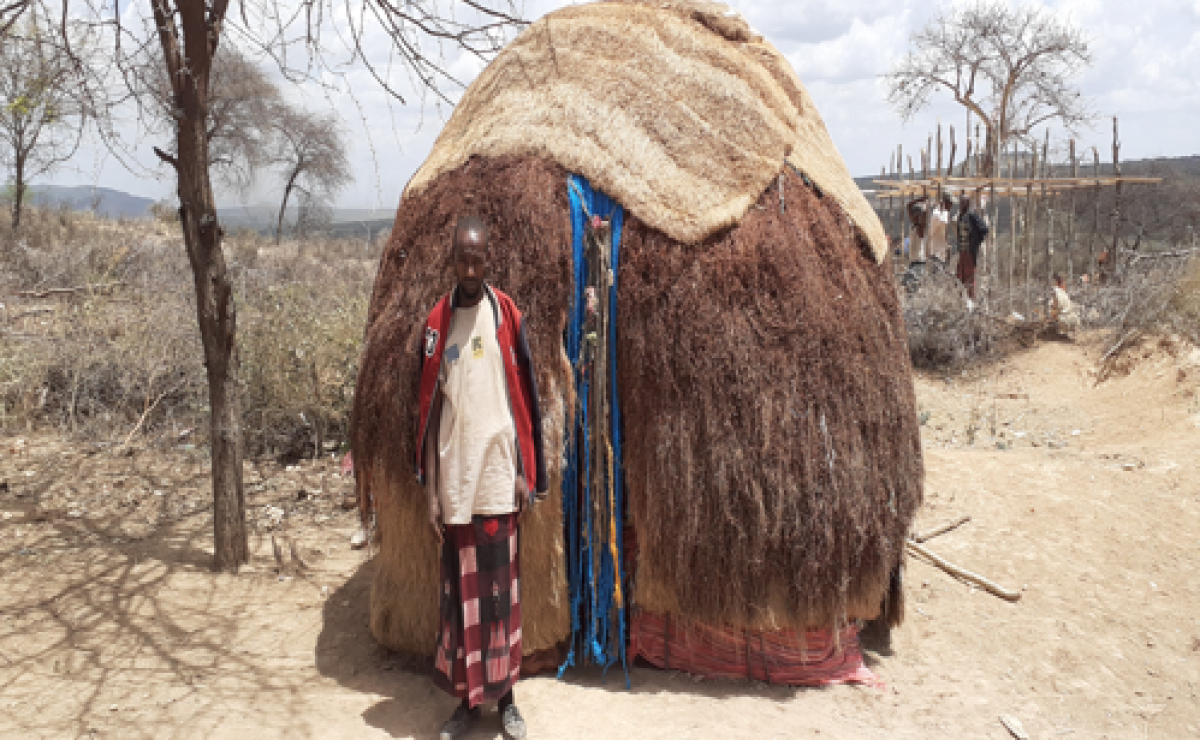Story of Muhamed Husien

Muhamed Husien is one of the IDPs who benefited from the ERM VII IDP response project implemented in Guradamole woreda of Bale zone in partnership with IRC/ECHO during December 02, 2019, to April 02, 2020.
The conflict between the Somali and Oromo ethnic groups caused serious humanitarian crisis and displacement of hundreds of thousands of people from both regions in 2017. Muhamed Husien 42 years and father of 7 children, 3 boys, and 4 girls were living in one of the kebeles along the border of the Oromia and Somali regional states in Guradamole woreda of the Oromia region. Muhamed and many others in the village had been leading a peaceful life and coexist with their neighbors from the Somali ethnic group across the border. “For except very few casual clashes arising from competition over resources, mainly pasture and water during the dry season, we (Oromo and Somali) both lived together as one family,” said Muhamed. However, in recent years the attitude among the people belonging to the two ethnic groups living along the borders started changing leading to the animosity that developed and gradually resulted in bigger clashes, deaths, and displacement. As the conflict escalated in the area with repeated reprisals, the community living along the borders was confronted by unprecedented attacks, looting and destruction of properties, and human loss. Muhamed remembers the day he and his children were forced to leave their village. He added ‘‘on that day the village was messed up with fighting and gunshots and others running here and there shouting and looking for their children.’‘ After settling around the border area, on September 30, 2019, another round of conflict erupted between the Somali and Oromo ethnic groups that displaced around 375 households who traveled to provisionally settle in Okoltu and Harbona kebeles of Guradamnole Woreda.
Muhamed didn’t remember well how fast he runs to his house to pick his children, wife, and start rushing to leave the village. They traveled on foot carrying their seven children leaving almost everything behind. Muhamed had 18 goat and 2 camels, but he only managed to bring the two camels along with him. The family traveled for five days and arrived in Okoltu IDP site of Guradhamole woreda, Bale zone. “I was very relieved to have arrived safely in the kebele together with my family,” said Muhamed six months after being displaced for the second time. He also said that at the beginning the living condition in the new place was difficult with no food, water, night cloth, shelter and kitchen materials. The host community helped the family with clothes, plastic sheets for shelter and the government provided them food.
Shortly after their arrival in Okoltu kebele, Muhamed received 15 items of kitchen NFIs, jerry cans to fetch water, washing basin, bathing and laundry soaps, mosquito nets, and shelter materials donated by the Lutheran World Federation (LWF). “LWF not only supported us with vital materials for cooking, shelter and for fetching and storing water, but also taught us to maintain our personal hygiene by washing hands regularly, wash children’s body, and use latrines,” said Muhamed. LWF constructed latrines separated for male and female and waste disposal pits for the community to promote personal and environmental hygiene and sanitation. Muhamed reported ‘‘before the construction of latrines by the LWF, open defecation was widely practiced by the community, but now the practice has changed and both male and female community members are using separate latrines which enabled us to keep privacy and comfort, especially for female.’‘ He further reported ‘‘the support has improved our life a lot which we consider this as compensation for the suffering we endured due to the conflict and displacement. I am now well aware of the health risks that can cause illness and the necessary hygiene care that we need to take individually and collectively to stay healthy. ’’ He added ‘‘thank you to LWF for providing the support amidst the security risk and all the inconvenience of traveling to reach to us because we know that the conflict situation around our site has not been resolved yet.’’
“Although we are not sure what our fate will be in the future although we wish to return to our original place and retain our properties such as land, we are very thankful for the support provided by LWF to me and many others in the kebele and that God bless the staff for the good deeds,” said Muhamed as a final remark raising his hands up.
https://ethiopia.lutheranworld.org/resources

